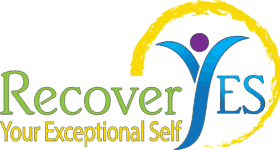Compulsive behavior of any sort can be really difficult to understand…and accept…for those that don’t have the problem. And, if you have been diagnosed with a life-threatening disease, it would be even more disturbing to find that you are developing problems that aren’t known symptoms. Apparently, that’s exactly what has been happening for people diagnosed with Parkinson’s disease.

The results of this study are interesting for anyone that is wondering how medication and pharmaceutical drugs might contribute to addiction problems that have already been identified. Or, particularly, problems that may not have escalated to a full-blown addiction prior to taking a prescription drug.
Many pharmaceutical drugs are designed to alter the brain’s natural response system or chemistry. It’s a risky business. There are always side effects that must be managed…sometimes with yet another drug that comes with its own side effects.
Medication for Parkinson’s Causes Compulsive Behavior
Those with Parkinson’s disease were no more or less likely to have the impulse control symptoms than those without the disease, with about 20 percent of each group having symptoms.
“These results provide further evidence that impulse control disorders that occur in people with Parkinson’s disease are related to the exposure to the dopamine-related drugs, not just the disease itself,” Weintraub said. “More long-term studies are needed to determine if the 20 percent of people who have some symptoms of these disorders are more likely to develop impulse control disorders once they start treatment for Parkinson’s.”
It’s always best to be cautious with any prescription medication. Just because the drug is prescribed by a medical doctor does not make it any less potentially harmful. And, many prescription drugs are more addictive than what a drug addict might have access to “on the street”. Addictive substances, whether they are legally prescribed or illegally obtained, alter the decision-making capacity of the person consuming them. When the reward center of the brain is stimulated artificially by the drug, the brain’s natural ability to make dopamine takes a break.
This is important to understand. The brain can heal and its ability to create chemicals to stimulate the reward system can be restored. Of course, it’s easier if you don’t interfere with the process in the first place. But, once an addiction problem has developed like compulsive behavior, there is no other choice but to put a recovery program in place that will allow the brain to heal.
The research being done by the Michael J. Fox Foundation is providing hope for those with Parkinson’s Disease and addictive behaviors. He has been an inspiration to countless people.
